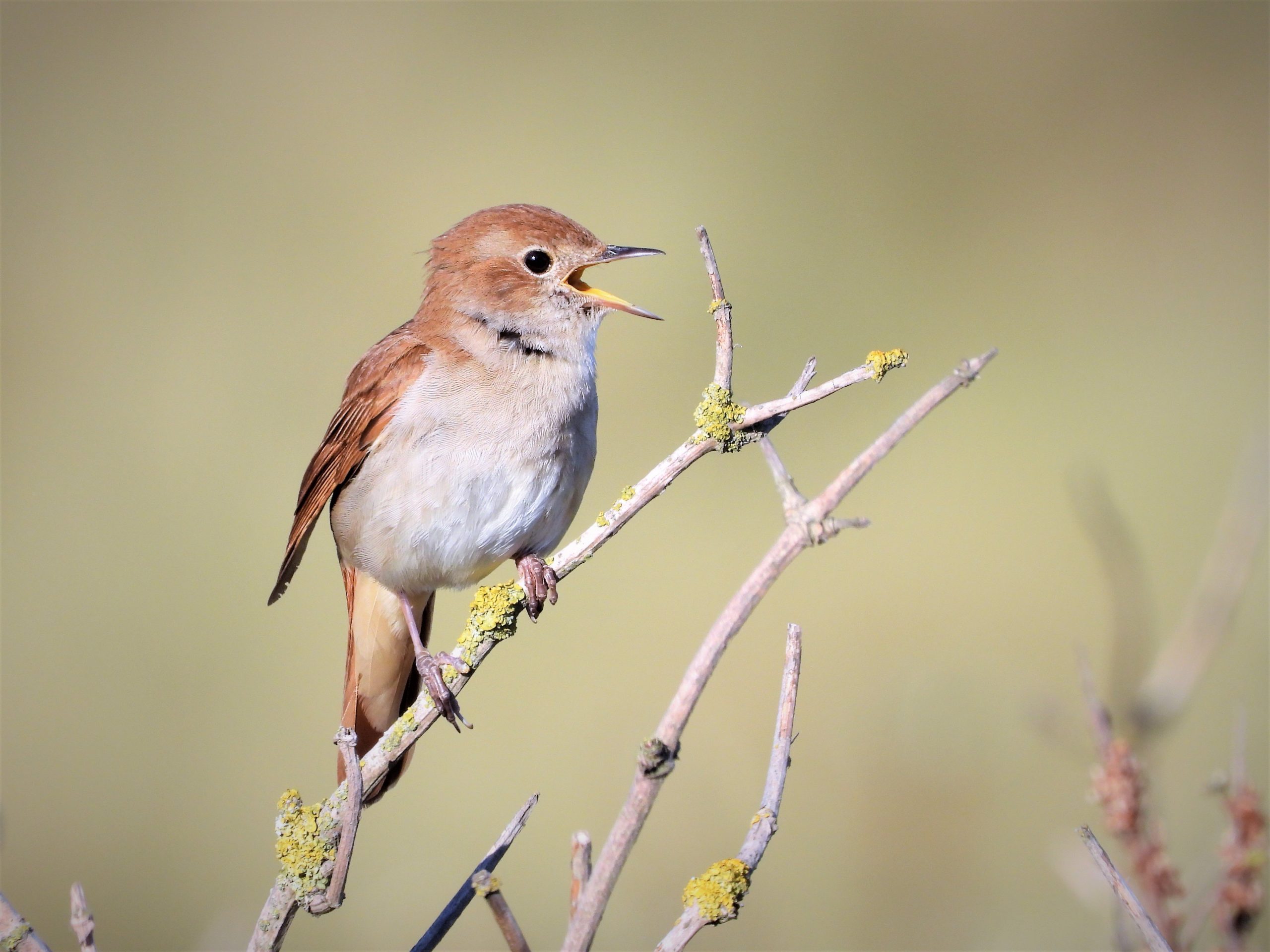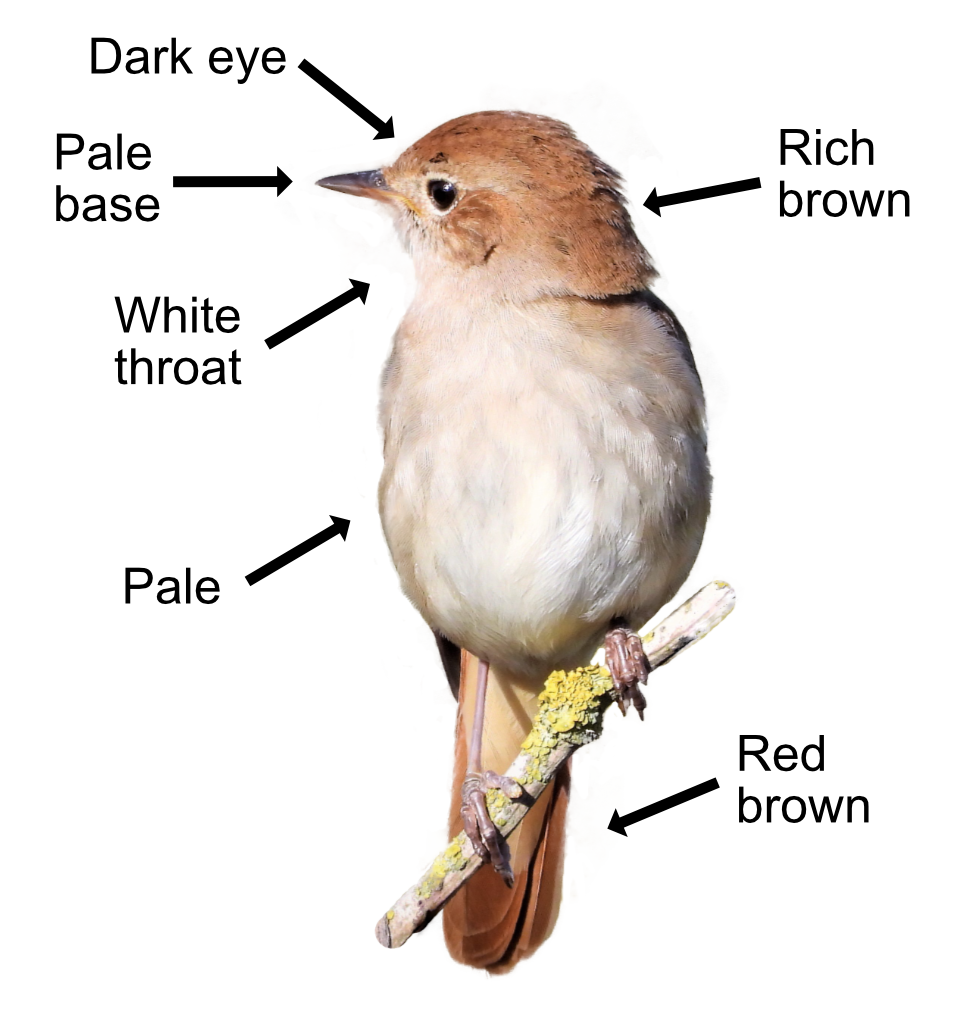
Immortalised in the song 'a Nightingale sang in Berkley Square' (which was probably a Robin as Nightingales hate cities) and being the subject of many famous poems throughout history by the likes of Homer, Milton and Keats, everyone has heard of the Nightingale yet few people have actually heard it. The Nightingale likes to hide and skulk about in deciduous woods and thickets close to water, mainly in Southern England and East Anglia when he pops over in the summer.
The Nightingale is like a large Robin without the red breast. It has rich brown upperparts, paler underparts, a whiter throat, a reddish tail, and large eyes. The bill is brown with a pale base. They sing during the day, but their song is most noticeable in the quiet of the night. The best time to hear them is after dusk or before dawn. On a calm night, their song can carry for over a mile. They have a rich, varied, flutey song with a twirly introduction and deep "chook chook" notes which slowly accelerates to an explosive ending. These guys can really sing. Clarity of tone and exceptional volume is their hallmark. They make an occasional thin "seep seep" contact call.

Nightingales move about on the ground with large hops while flicking their wings and cocking their tails. Their favourite food is insects, worms, spiders and berries.
The male returns first in mid-April, establishes a territory and sings to attract a mate. He will sing through to June, only stopping once the young have hatched, and he is too busy helping with their feeding. The female builds a nest on or near the ground. It is a bulky affair made out of grass and leaves. She lays her 4-5 eggs in May and incubates them on her own. The eggs hatch after 13 days and both mum and dad feed the chicks who can fly after 11 days. The youngsters become fully independent 3 weeks after leaving the nest and the whole family has returned to Africa by late summer.
The Nightingale is a rare summer visitor with about 6,500 pairs coming to Britain. They are 'Red Listed' as they have declined in recent years. This is thought to be due to the decrease in coppiced woodland and the spread of wild deer reducing suitable habitat. The deer eat all the undergrowth.
Their Latin name is 'luscinia megarhynchos' where 'luscinia' means 'nightingale' and 'megarhynchos' is from Ancient Greek 'megas' for 'great' and 'rhunkhos' for 'bill'. Nightingale with an enormous nose is a little cruel. The English name is derived from 'night', and the Old English word 'galan' meaning 'to sing' which is much better.